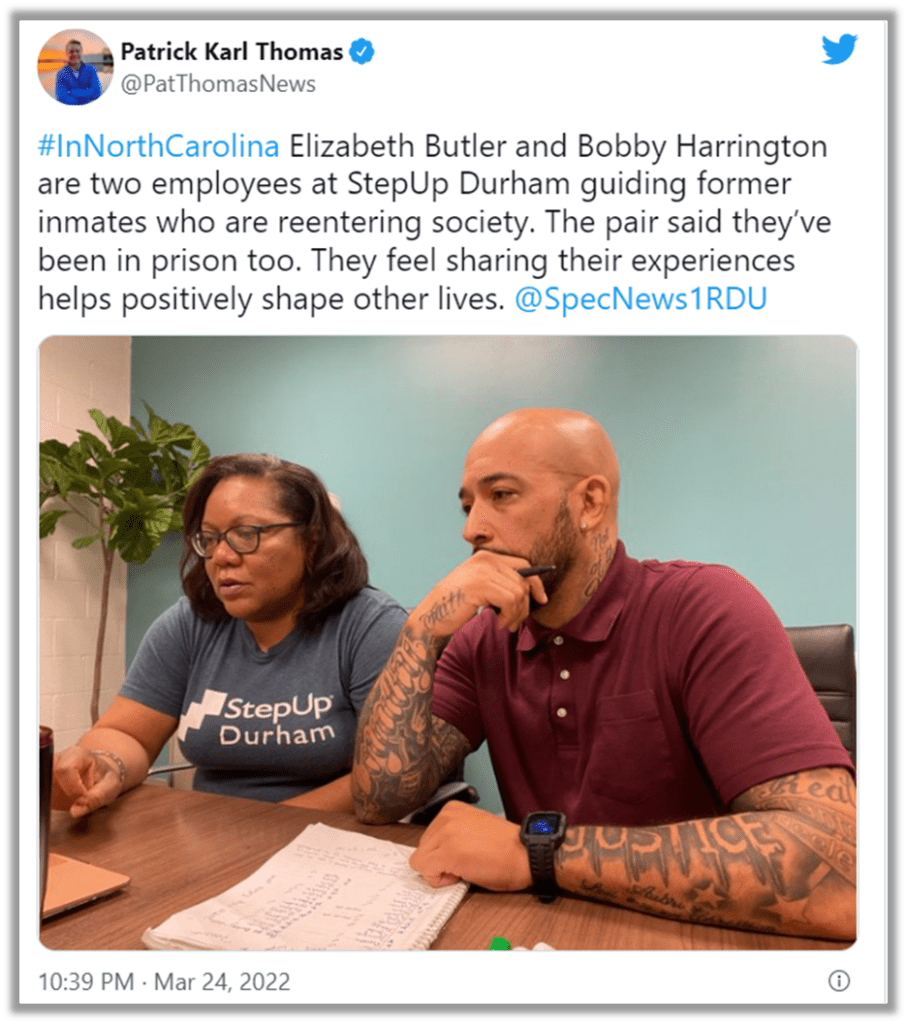In a day when America is ruling over a global Empire maintained with violent enforcement to insure universal subordination to its will; and in a day when a military-style domestic police state relentlessly makes sure anti-government protest and dissent is contained, the patriarchal part of that America has been enhanced and strengthened.
Feminist movements have launched long, fierce struggles to undermine patriarchal culture: to ensure female power, to assert woman’s image as showing woman’s strength, to refute women’s inferiority to men, to establish female equality, politically, economically, and personally. In my own work, I’ve analyzed those struggles: first, the National Woman’s Party’s heroic campaign for woman’s suffrage, which included jail, beatings and forced feeding; second, the uphill battle of women athletes, from the late 19th century on, striving to rid themselves of the necessity to have an image of “sex appeal” and just play ball. And last, I’ve written of the amazing courage of American women political prisoners, women who challenged a government and society which refused to recognize their right to be dissenters against imperialism—racism—capitalist inequality and ecocide—and sexism.
The Patriarchy, in spite of all the movements, campaigns and struggles, is not dead yet. The problems come from many directions, but they circle back to age-old conditions. We feminists of the 1960s-70s thought we might have won some of the battles. I almost got out of my car to object when I drove through a town near where I live to challenge workers sporting “men working” signs. My Saratoga NOW chapter succeeded in eliminating separate sections for male and female in the local paper’s help wanted section in the 70s. What happened to that?! We feminists must continue to stubbornly insist on our equality, on woman’s image not being sexualized, and on changing women’s lack of power. We must keep on insisting that women are not inferior to men, should be believed, should be listened to.
American sports, still a stubbornly male-dominated institution, has largely held the line against real female equality. All this was very evident last March when NCAA women’s basketball was not accorded anywhere near balanced attention, or its needs met in a comparable way to the men’s. More ominously, the NCAA has shown their (lack of) concern for women athletes, especially vis-à-vis some criminally violent male athletes, when it decided, as Jessica Luther wrote in the LA Times, that “rape is not an NCAA violation.” Between 2011 and 2016, 17 women reported assaults by Baylor University football players, including four gang rapes.
In the spring of 2012 a woman volleyball player reported being assaulted by “multiple football players” at a party. After her mother spoke to the athletic director and football coach Art Briles, nothing was done. A player was convicted of sexual assault in 2015, but in 2016 and 2017 lawsuits against Baylor accused the school of continuing to ignore its “culture of sexual violence.” Coach Briles was finally fired in 2016, and college president Ken Starr, who had belatedly started an investigation, also resigned. Recently, citing pandemic delays, the NCAA finally ruled on Baylor’s culture of violence by deciding it “did not break NCAA rules.” Although the NCAA panel punished them for an academic infraction, they did not find Baylor guilty for not reporting or addressing “sexual and interpersonal violence.” They declared it was a failure of the coaching and athletic staff, but not an NCAA problem. They who supposedly wanted (women) athletes to be safe, offered no assistance in the case of “gendered violence.” Numerous attempts to get the NCAA to change this policy have not succeeded. Remember Michigan State was cleared of blame for allowing gymnastics’ doctor Larry Nasser’s unspeakable sexual crimes against young women!
The NFL also does not do well dealing with sexual violence. Player violence against women has been commonplace, with few repercussions. The recent case of accused multiple sexual assaulter DeShaun Watson is illustrative of valuable player versus serious female complaints about him. The Houston quarterback has had a number of licensed massage therapists accuse him of unwanted sexual acts and assault. At this time, Watson is facing 22 civil law suits and 10 criminal complaints, and is thus on the NFL’s “inactive” list. The victims were interviewed by NFL investigators who treated them—said the women—in a “patronizing” and “victim-blaming” manner. The NFL placed no restrictions on Watson during the investigation, who, according to his accuser Ashley Solis, not only assaulted her but threatened her career when she got upset. When the investigator questioned what she wore for their massage sessions, she asked: “What did they think I should wear to suggest that I don’t want you to put your penis in my hand?” She has said that “the NFL is taking a stand against women and survivors of sexual assault.” The NFL is also not so great in other areas regarding women’s worth and dignity.
Cheerleading is a (predominantly) female sport which has encountered all kinds of indignities. The NFL teams Buffalo, Cincinnati, Jets, Tampa Bay and Oakland all faced lawsuits from cheerleaders in 2014. Two Buffalo Jills told HBO’s Real Sports they receive $125 a game, and nothing for ads, photo shoots or practices. Some of these lawsuits were successful, but today there are still NFL cheerleaders making less than $1,000 a year. The interviewed Jills also said they were rejected as dancers if they didn’t pass “the jiggle test” while doing jumping jacks. First female Jet football coach Collette Smith said on “Real Sports” that it does not seem right for cheerleaders, “athletes,” to just have to “shake with no clothes on, like sex kittens!” There’s a new documentary film called “A Woman’s Work: The NFL’s Cheerleader Problem,” about which Director Yu Gu says, that in a culture with “toxic masculinity… men feel entitled to women’s bodies.” An even darker situation took place with youth cheerleaders. In an unregulated sport, except by its own million-dollar profit-making organizations, abuses have been many. Male cheerleading “coaches” supposedly training cheerleaders, instead sexually assaulted them—and continued to participate in the sport. Two were even featured on the Netflix “Cheer” show, before finally being arrested and scheduled for trial. Not much protection there, when, as usual, it might interfere with image and therefore profit.
Image is also an issue regarding this year’s Tokyo Olympics. I watched with admiration as silver medalist shot putter Raven Saunders demonstrated for human rights and against racism on the Olympic podium by crossing her arms over her head to show their intersection. The IOC’s (International Olympic Committee) restrictions on protests held quite well, although hammer thrower Gwen Berry and the US women’s soccer team took a knee before competing. Women Olympic athletes have not been afraid to speak out. Track and field athlete Sara Goucher, with several other women, accused former champion marathoner and prominent track coach Alberto Salazar of “doping violations” and of abuse. He is banned, at least for now.
A problem which has always resonated with me is the way female athletes dress to do their sport. It’s not new: female baseball players had to wear short skirts and female basketball players sported red wigs in the 40s, but now it is beyond absurd. Women have to wear (it’s mandatory) very revealing outfits as skaters, runners, beach volleyball players and gymnasts. But some women are protesting this. Norway’s women’s beach handball team (not yet an Olympic sport) were fined after they wore shorts instead of bikinis at EURO2021. And at the Olympics, the German women’s gymnastics team wore unitards covering their whole body from the neck down. They said they wanted to “push back against the sexualization of women in gymnastics.” Male gymnasts wear shorts and loose pants. It’s the Olympic women who wear revealing outfits to run, and bikinis to play beach volleyball. It’s an extreme demonstration of “sexualization,” of a patriarchal culture limiting woman’s image to a sexual one, rather than one of a competent, strong athlete.
In a patriarchal culture, male power attempts to supersede women’s. In such an environment, women have little value and receive little respect. And when powerful male politicians do this (and there are so many of them), it becomes very public. (Former) Governor Andrew Cuomo is the latest to fall from grace after many years of getting away with sexual misconduct toward his staff, campaign organizers, and even a female state trooper. Some of his fellow Democratic politicians have called him “a lecherous tyrant” who empowered his staff “to threaten and intimidate.” Cuomo collected young, good-looking women to work for him and they were expected to always dress well, including makeup and high heels. If a woman decided she didn’t like his demands and cruel work environment, it was made clear she’d have a hard time getting another job. Inappropriate comments and touching were his trademarks. He was able to maintain this extremely harmful situation for women in his employ until on August 3rd, New York Attorney General Letitia James, after taking on the growing complaints (which had gotten nowhere with senior staff), issued her thorough and well-investigated report which accused the governor of “sexually harassing 11 women in violation of the law.” The report detailed “unwanted groping, kissing, hugging and inappropriate comments.” Some were worse, such as the Albany staffers who reported that he grabbed their breasts. And so the media darling who supposedly handled the COVID crisis so well (except for that pesky problem with covering up nursing home deaths), had to resign. Most Democratic politicians abandoned him in the end: but two who held out a long time were President Biden and Vice President Harris.
President Trump’s sexual misadventures were numerous, as such things are very much bipartisan. Bill Clinton’s sexual misconduct got him impeached. He admitted to relations with Monica Lewinsky, but faced more serious allegations of rape from Juanita Broaddrick. Last March Kamala Harris held a discussion about “empowering women and girls”—something the Clinton Foundation states that it does around the world—which included Mr. Clinton. Broaddrick asked in a tweet if conference host Howard University might “like to include me in their empowering event with Bill Clinton?” Harris had no comment on that, nor, at that point, on the accusations surrounding Governor Cuomo. The President also did not feel Cuomo should resign, until after the Letitia James report was revealed. Funnily enough, Joe Biden has been accused of the self-same thing as Cuomo, for years. During Biden’s presidential campaign, these proclivities were brought up, especially by Tara Reade, his former staffer. Reade accused Biden of serious sexual assault, including pressing her against a Capitol corridor wall and digitally penetrating her. She reported this incident to friends and family, and senior staff (to no avail), at the time. Other women have complained of similar incidents of inappropriate touching, up to and including on the 2020 campaign trail. Reade’s May 2020 interview with Megyn Kelly tells of her experience, but she also talks about the overwhelming hate she has received from the media and the utter disbelief from Democratic women protecting their candidate. As Reade said to Kelly: “Do we want [as president] someone who thinks of women as objects, who thinks that they can just take what they want in that moment for their pleasure and that’s it?” She was not believed, an experience common to so many women who have undergone abuse by powerful men, from Dylan Farrow (re Woody Allen), to Ambra Gutierrez (re Harvey Weinstein), to Andrea Costand (re Bill Cosby), and to women aides and staff of important and powerful men. #Me Too has been a good thing, to a point. Women still shy away from believing accusations against certain men.
Not believing women is inherent to patriarchal culture. I remember going to the hospital when I was teaching in Fargo, where I was eventually admitted for severe dehydration and a bad case of the flu. The male doctor who first saw me talked of “the so-called pain in my chest.” He apparently didn’t believe me. The value of women’s bodies certainly seems to be in question when yet another struggle supposedly won in the 70s—a woman’s right to choose abortion—is, thanks to the rise in power of Christian right fascists who are (!) patriarchal, again in jeopardy. Women’s lives are in jeopardy on many fronts. Attorney and John Jay professor Marcie Smith Parenti wrote a piece for the Grayzone, entitled “Why Won’t the US Medical Establishment Believe Women?” She outlines a serious situation where the CDC and FDA, in their rush to vaccinate everyone (only 23% of pregnant women have at least one dose), have seriously downplayed and dismissed evidence that thousands of women have been adversely affected by the COVID-19 vaccines (most related to the mRNA vaccines). Large numbers of vaccinated women have had their menstrual cycle disrupted: extreme cramping, passing golf-ball size blood clots, and having “hemorrhagic bleeding.” Parenti has several friends with such symptoms. But beyond possibly anecdotal experience, by July of this year, the UK had 13,000 reports of “menstruation disruption,” with similar reports in Canada and India.
The US, with its “Vaccine Adverse Event Reporting System (VAERS), had thousands of reports (they admit VAERS only catches a low percentage of adverse events) by July as well: such reports included 88 “fetal deaths” and 25 “stillbirths” along with the hemorrhagic bleeding. Although the FDA and CDC quickly warned of the myocarditis threat (a heart ailment) to young men posed by the vaccine, no warnings have been issued regarding menstrual disruption. Parenti argues that menstruation is a central issue for women’s health and there are many incidents revealing that cycle’s disruption in myriad and very serious ways, including possible infertility. She says that women deserve an investigation into these reports, with explanations and medical information, and “non-punitive accommodations if they decline a vaccine at this time.” But no: they can be barred from school and public places, and lose their jobs. And if women are showing too much concern publicly, Parenti says they are “subjected to 1950s-style dismissal and demonization.” After all, such concerns could “stoke unwarranted vaccine fears.” And about such trivial health issues as menstruation, just “woman troubles.”
Last June the National Institute of Health called for proposals to study a possible link between the vaccine and menstruation disruption. And now, the NIH has at last ordered a study about that possible link, $1.67 million worth, with a half million (!) participants. But Diana Bianchi, NIH head of child health and human development says the FDA should not be faulted for the investigation’s delay. And the (of course, justifiable) reason for the delay has been echoed in every single item of media coverage I’ve read over the last few days. The FDA was “worried this was contributing to vaccine hesitancy in reproductive-age women.” Bianchi says the vaccine certainly does not cause infertility. And (again echoing all the news reports on it), “really [menstruation} is not a life and death issue.” Women should simply do what they’re told and ignore their “so-called bleeding.”
Another area where there is a lack of confidence in what women say is when they warn of wider environmental dangers. Traditionally women have tried to prevent harm and bring healing to the environment. Women whistleblowers have suffered repercussions for warning against corporate entities’ disastrous policies; while indigenous women have sacrificed to try to protect Mother Earth from corporate disregard for the Earth’s destruction. African-American women are all too familiar with environmental racism, from the drinking water of Flint, Michigan to the waters of Hurricane Katrina (and now Ida). When Mississippi environmental analyst Tennie White, a Black woman, brought to light highly toxic wastes produced by Kerr-McGee endangering the people of Columbus, Mississippi, she was railroaded by the EPA’s “Green Enforcement” Unit and went to jail. And recently, another woman whistleblower was ignored and punished. Ruth Etzel was hired by the EPA as an expert in children’s health; a pediatrician and epidemiologist she has done stints at the WHO and CDC. Etzel was to investigate lead poisoning in the chemical industry. She found herself put on leave, demoted and then became a victim of an EPA smear campaign. Etzel and other fellow scientists found that the EPA’s biggest concern is protecting chemical companies. Her suggested policy to help children avoid lead poisoning, formed after she found industries were doing “irreparable harm,” has yet to be put into effect. Neither Obama, nor Trump, nor now Biden has changed the trend to protect corporations, and not the environment, humans, or even children.
Native-American women fighting fiercely against the terrible poisons of oil pipelines are harassed and jailed. Winona LaDuke, Green Party VP candidate and head of environmental advocacy group “Honor the Earth,” was arrested and jailed repeatedly last July for protesting against construction of a new Enbridge oil pipeline in northern Minnesota. Minnesota recently granted Enbridge the right to displace five billion instead of the former half billion gallons of water. Such a disastrous situation leads LaDuke to protest and thus be charged with trespassing, harassment, unlawful assembly and public nuisance charges. She charges Minnesota governor Tim Walz with giving “the water, the land and our civil rights to a Canadian multinational.”
The incomparable LaDonna Brave Bull Allard, died last April, fighting to the very end against the Dakota Access Pipeline. As of a month ago, federal regulators had fined DAPL for safety violations like not doing necessary repairs and insufficient oil spill impact studies. But Biden’s Army Corps of Engineers is still allowing the pipeline to operate. The women of Standing Rock and Honor the Earth will never stop their campaigns against corporate poisoning of their lands. As LaDonna Allard said, the movement is not just about a pipeline. “To save the water, we must break the cycle of colonial trauma.” And: “We are fighting for our rights as the Indigenous peoples of this land; we are fighting for our liberation, and the liberation of Unci Mako, Mother Earth.” Women fight to protect the Earth from the American corporate state and women fight to protect people from the violence of the American police state.
The penalties can be dire for those who dare challenge police violence. Lillian House and Eliza Lucero of the Denver area’s Party for Socialism and Liberation (PSL) helped lead a persistent protest against the police and paramedics’ killing of the unarmed and unresisting young man, Elijah McClain. Lucero and House faced felony charges of incitement to riot and kidnapping (of police) which could have meant sentences of 48 years. Thanks to public pressure and a new district attorney, all charges were dropped on September 13th. Earlier in the month, three police officers and two paramedics were indicted for McClain’s murder. PSL’s Lillian House stated that “the indictments are a major victory, but they’re not convictions yet. This is just the beginning of the people here taking power.” And this is what these women activists want: a dismantling of the police state in favor of “the people” being in charge.
This is the goal of the movement, bringing huge numbers of people into the streets after George Floyd and Breonna Taylor’s executions. But these demonstrations, gradually called “riots” by the corporate media, have been hard-pressed to continue. A report by the Movement for Black Lives found there has been a major crackdown on dissenters against police violence. Charges against protesters were made into more serious federal crimes, with harsher penalties. Surveillance, violence, and intimidation, in a coordinated vast federal enterprise, has been the usual response to potentially viable movements to change the corporate police state. Because Rev. Joy Powell tried to curb police violence in Rochester, NY, she’s served 14 years inside, framed for crimes she didn’t commit. But she is never cowed, despite solitary, COVID, and all the harassment they dish out. She recently wrote me (and I get some of her letters, but she gets very few of mine) that she “made it to an interview” with Essence magazine, which did a great job of gaining her deserved attention. The Police State is an entrenched corporate/capitalist/patriarchal institution, as is the American Empire.
The Empire is not feminist. It is dangerously extreme in its macho Patriarchy. The military, particularly one which has for years fed on death and destruction against helpless civilians, many of them women and children, is not feminist in its aims. Expecting an occupying army to initiate and protect women’s rights is insane. The women of Afghanistan have been tortured and murdered by US forces for over 20 years. Perhaps a few elite women were helped and protected under American occupation, but their numbers are few.
Aafia Siddiqui, Muslim woman prisoner of the Empire is serving her 86 years in a Texas maximum security prison—or not, it’s not clear if she’s still alive. Siddiqui was raped, mutilated and tortured in American black sites, including Bagram (US) Air Force Base, Afghanistan, and was grievously shot in Ghazni, Afghanistan by American soldiers who needed her to be seen as a “terrorist” and so staged what was supposed to be her attack on the soldiers. This is women’s rights in Afghanistan.
As the incredible Caitlin Johnstone has written: “If the US empire hadn’t manufactured consent for the invasion by aggressive narrative management about Taliban oppression westerners would give 0 fucks about women in Afghanistan, just like they give 0 fucks about women in all the other oppressive patriarchal nations.” Was it worse for women to have a Taliban government, or to endure a 20-year occupation which has brought untold death and destruction to Afghan women and their families? Occupying and controlling Afghanistan is not a feminist undertaking. And so-called American feminist leaders should know better than to support it. But NOW leaders urge you to write your Congress people to protect Afghan women (from the Taliban). The “advances in [Afghan] women’s rights of the last 20 years are in jeopardy.” The Feminist Majority web page asks for money for the same purpose, telling us that in 2009 Obama showed concern for “Afghans’ security” and the Americans “have brought much progress for women there,” in the last 20 years. With all Obama’s drone killings? Are you people serious? This is not feminism.
“Feminists” are also proud to see female warmongers as part of President Joe Biden’s Team. There is Deputy Secretary of State Wendy Sherman, who helped engineer the Iran deal (not a great one for them) and spent her early days in office busily scolding China to ramp up our newest Cold War. Or Undersecretary of State Victoria Nuland, who famously helped arrange the neo-Nazi takeover of Ukraine in a power play vs. Russia, with her also famous leaked diplomatic conversation where she said “fuck the EU” re involving American allies. Secretary of the Army Christine Wormuth has a strong police/Homeland Security background; and Deputy Secretary of Defense Kathleen Hicks will oversee a “modernization of our nuclear triad.” Avril Haines, Biden’s Director of National Intelligence, from the CIA, directed the drones program for Obama, sometimes having to get up in the middle of the night to decide who should be killed by a drone next. Of course, there was never “collateral damage,” as we’ve seen just recently in our Afghanistan drone hit which killed an entire family (they were not ISIS K). Wonderful to have such feminist examples! As commentator Richard Medhurst (half Syrian, half British) has said: isn’t it great for Biden to have all these women involved? Will they drop pink bombs—rainbow bombs?—on my country?
The real feminists are the stalwart anti-war women who fight the very real threats of Empire. The women to be truly admired are women like Elizabeth McAlister, Martha Hennesy (Dorothy Day’s granddaughter) and Clare Grady. In 2018 they entered Kings Bay, Georgia naval base to bear witness against the Empire’s potential for nuclear war. They have all now served time, 10 to 12 months, for trying to, as McAlister said, “slow the mad rush to the devastation of our magnificent planet.” They too would save Mother Earth. They too, like the tortured and ruined Julian Assange, are truth-tellers against the Empire. Dismissed, ignored, not believed, imprisoned. These are what 1980s political prisoner Marilyn Buck called “noncompliant women”—women who the patriarchal authorities believe should be put back into subordinate, quiet and compliant status. Such authorities believe women should wear bikinis and makeup as athletes, not question if a vaccine has deleterious side effects on them, and overlook a governor’s inappropriate behavior. Let’s not be compliant. Let the struggle continue.

The post
Patriarchy: The Struggle Continues first appeared on
Dissident Voice.
This post was originally published on Dissident Voice.







